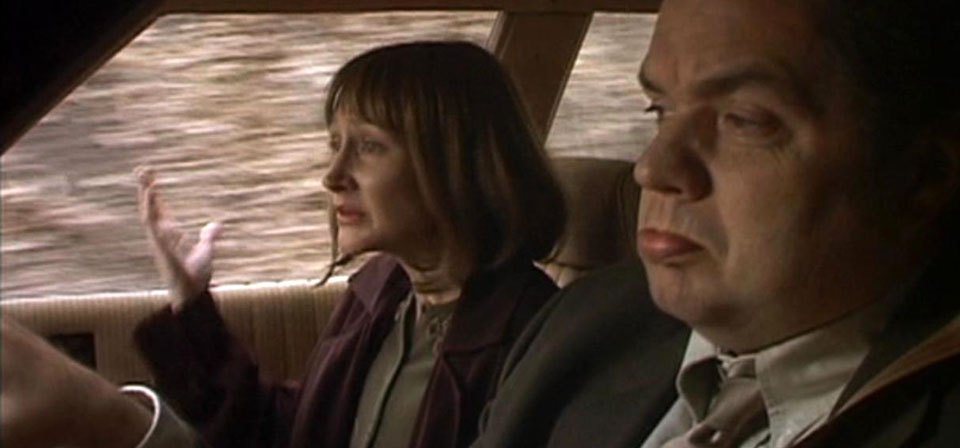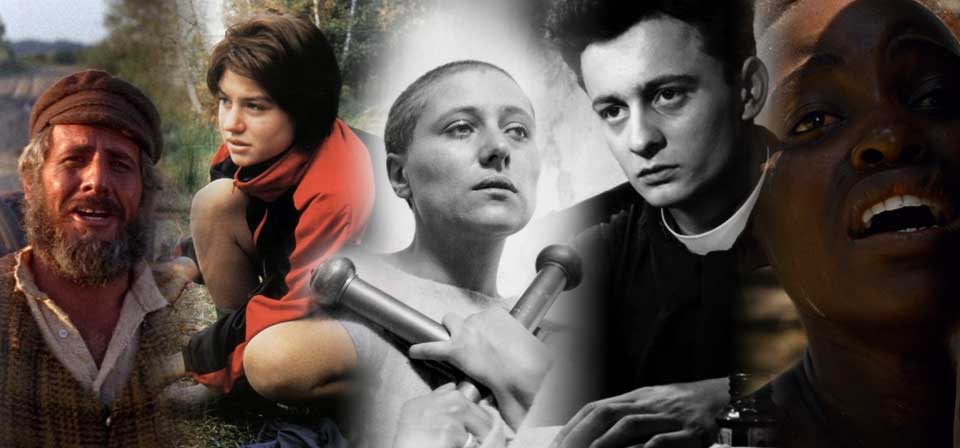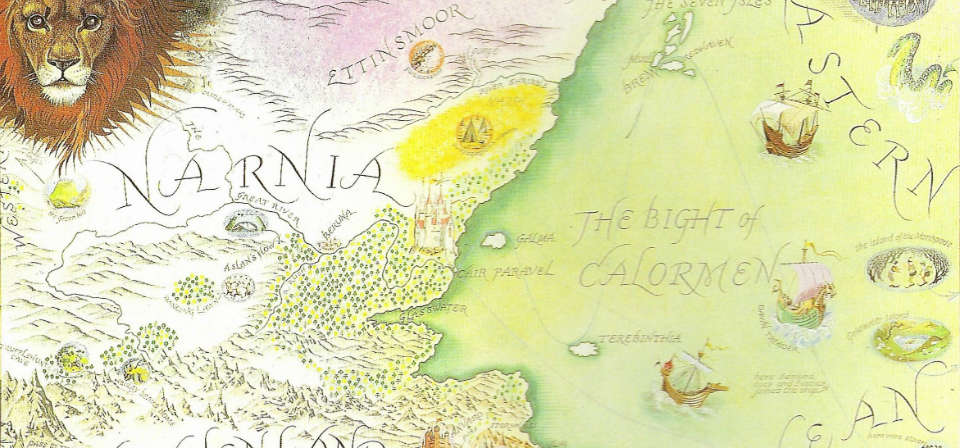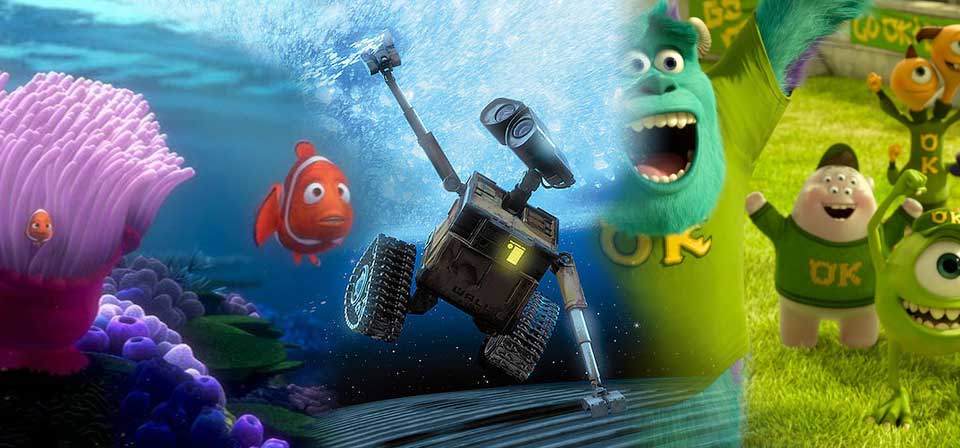Search Results
110 records found
Thank You, Image Journal
Recognition and praise are always appreciated, but this month’s shout-out from Image Journal naming me their Artist of the Month for January 2012 is especially gratifying. They have some thoughtful comments about my film writing, both with respect to craft and content, and the guy they’re describing sounds to me like the guy I try to be. Suz says they nailed me. What do you think?

Thanksgiving leftovers: Pieces of April
Pieces of April is about the danger, and the necessity, of hoping against hope in a troubled situation, of taking the risk of trying to make it work when there is ample reason to foresee failure.

“That’s a crucifixion!”
But the Crucifixion was not only on Calvary, and if Christ is on the waterfront, he can also be found in a medieval prison cell, a cheap, penny-ante building and loan in a crummy little town, a Russian shtetl (a small Jewish town in Eastern Europe), a Belgian trailer park, or the slaves’ quarters of a 19th-century Louisiana plantation.

The theology and philosophy of Avengers: Age of Ultron
We aren’t exactly talking The Matrix here, but it’s been awhile since a Hollywood popcorn action movie elicited such a range of theological and philosophical analysis.
![The Theory of Everything [video]](/uploads/articles/theoryofeverything.jpeg)
The Theory of Everything [video] (2014)
Stephen Hawking and Jane Wilde’s 30-year-marriage gets the Wikipedia treatment, if Wikipedia were prettier, and sanitized.
There Be Dragons (2011)
As played by English actor Charlie Cox (Stardust), Josemaría emerges as a likable, dedicated, virtuous young man much loved by his circle of friends, the first generation of Opus Dei. There are a few evocative scenes, such as the impression that a barefoot friar’s tracks in the snow make on the young Josemaría. Yet despite a line or two about Opus Dei spreading to other countries, there’s little sense of Escrivá himself as a figure of any particular note.
There Be Dragons [video]
If you don’t have 30 seconds to spare, here’s a spoiler: There aren’t really any dragons.

There’s only one right order to read the Narnia books
I consider the chronological numbering system a travesty, since I maintain that the only right way to discover the Narnian world is the way Lewis “discovered” it.
“They slaughtered hundreds of people!”
I’ve gotten a number of queries about the fevered discussion about Opus Dei’s murderous history and sinister influence in the Church related by filmmaker Roland Joffé in the press conference I reported on a couple of weeks ago.
The Thief of Bagdad (1940)
In this version, the romantic lead who falls in love with the princess is not the titular thief, but a beggar named Ahmad (John Justin) who is actually the rightful king of Bagdad, but has been deposed by his treacherous Grand Vizier Jaffar (Conrad Veidt). The thief, on the other hand, is a mischievous, resourceful lad named Abu (Sabu).
The Thief of Bagdad (1924)
Rivaled only by the awesome Babylonian segments of D. W. Griffith’s Intolerance, Douglas Fairbanks’ lavish, extravagant The Thief of Bagdad ranks as the very pinnacle of silent-era spectacle.
Things We Lost in the Fire (2007)
Though not always faithful in small things, Things We Lost is faithful in much. The individual moments are sometimes off, but the large emotional resonances are right.
Thirteen Days (2000)
Thirteen Days is about how a few imperfect men more or less saved the world. Whatever else Kennedy and these other men may or may not have done, this was perhaps their finest hour, and the world owes them a debt of gratitude. If the threat of Mutually Assured Destruction seems remote and antiquated today, it is at least partly because of the events dramatized in this film. Thirteen Days is a fitting dramatic tribute to the deadly brinksmanship that pulled us back from the edge during the most volatile two weeks of the Cold War.
This Friday “Catholic Answers Live!”: Two hours of Decent Films radio!
Once a month Patrick Coffin of “Catholic Answers Live!” and I talk about movies for an hour that never seems quite long enough for all the films we want to talk about. So this month, we’re taking two hours! Friday on “Catholic Answers Live!” it’s all Decent Films, all the time, from 6pm–8pm EST (3pm–5pm PST).
This week on DVD & Blu-ray
This week’s DVD and Blu-ray releases include noteworthy new editions of a pair of films worth highlighting: The Reluctant Saint, newly available from Ignatius Press, and Fellini’s 8½, now on Blu-ray from the Criterion Collection.
Thor (2011)
It starts pretty promisingly, and it stays pretty promising throughout, and at some point you realize it’s never actually going to deliver on that promise. There’s never a moment where it goes really wrong — it just never really gets started.

Thor: Ragnarok (2017)
Officially, Thor: Ragnarok is the third Thor movie, but in spirit it’s closer to being the third Guardians of the Galaxy movie. This is both a mark of the massive success of the Guardians films, with their colorful, whimsical design and self-mocking humor, and of the relative failure of the first two Thor films, especially The Dark World, to find a vibe of their own.
Thor: The Dark World [video] (2013)
Is Loki a villain or an antihero? Either way, the fan favorite is basically the Marvel Universe’s answer to Catwoman, but he can’t carry the movie if he isn’t the main antagonist.

Three ages of Pixar
For 15 astonishing years, from 1995 to 2009, Pixar created a body of work — 10 films — so revolutionary and beyond mainstream Hollywood animation that it’s hard to quantify … In recent years, alas, Pixar has stumbled more often than not.
The Three Musketeers (1921)
Danny Kaye in that classic swashbuckling satire The Court Jester may well have been thinking of the great Douglas Fairbanks when he described his own character with the words: “He never walks when he can leap, he never flees when he can fight. He lives for a sigh, he dies for a kiss, he lusts for a laugh!”
Recent
- Crisis of meaning, part 3: What lies beyond the Spider-Verse?
- Crisis of meaning, part 2: The lie at the end of the MCU multiverse
- Crisis of Meaning on Infinite Earths, part 1: The multiverse and superhero movies
- Two things I wish George Miller had done differently in Furiosa: A Mad Max Saga
- Furiosa tells the story of a world (almost) without hope
Home Video
Copyright © 2000– Steven D. Greydanus. All rights reserved.